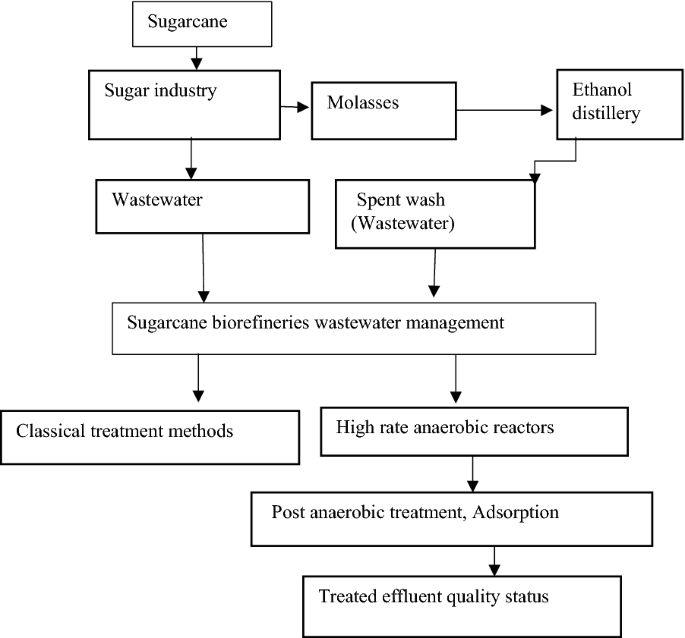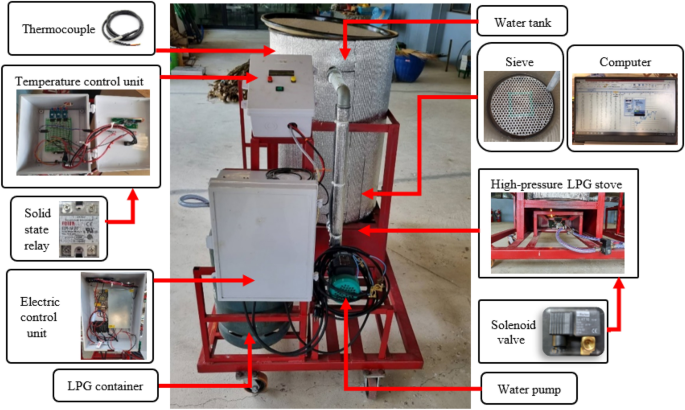Discover the Innovative Benefits of Products From Sugarcane for Sustainable Living
Sugarcane has actually become a crucial source in the mission for lasting living. Its varied applications cover eco-friendly product packaging, renewable resource, and healthier food options. As industries seek environment-friendly choices, sugarcane's convenience provides appealing services. However, the true possibility of sugarcane expands past its existing uses. Exploring its innovative benefits could expose new paths towards a much more sustainable future. What various other possibilities might this exceptional plant hold?

The Increase of Sugarcane as a Sustainable Source
As international awareness of ecological issues expands, sugarcane has emerged as a noticeable sustainable source. This flexible plant provides a selection of benefits that contribute to green practices. Sugarcane is a sustainable source, capable of thriving in diverse environments while absorbing carbon dioxide, thereby alleviating greenhouse gas emissions. Its rapid growth cycle allows for frequent harvesting, leading to a constant supply of raw material.Additionally, sugarcane farming usually needs much less water compared to other plants, making it an effective choice in water-scarce areas. The byproducts of sugarcane, such as bagasse and molasses, can be repurposed for various applications, reducing waste and advertising round economic situation concepts. Advancements in farming techniques have actually led to more sustainable farming methods, even more enhancing sugarcane's environmental profile. As consumers progressively look for sustainable choices, sugarcane stands apart as a sensible alternative for those dedicated to minimizing their environmental footprint.
Biodegradable Packaging Solutions
How can biodegradable product packaging services change the means customers approach sustainability? By utilizing sugarcane-based products, these cutting-edge services provide a compelling choice to conventional plastics. Biodegradable packaging made from sugarcane decays normally, noticeably lowering land fill waste and greenhouse gas exhausts. As consumers come to be significantly aware of their environmental influence, the demand for lasting product packaging remains to rise.These sugarcane-derived products not just serve sensible functions but likewise line up with eco-conscious customer worths. They supply a tangible means for organizations and people to add to a round economy, promoting resource performance and reducing environmental impacts. Furthermore, as industries embrace naturally degradable choices, they cultivate a culture of sustainability that reverberates with an expanding group seeking accountable choices.In significance, biodegradable product packaging solutions from sugarcane stand for a vital advance in lasting techniques, empowering customers to make eco friendly choices without sacrificing convenience or high quality.
Renewable Energy Generation From Sugarcane
A considerable part of renewable resource generation can be originated from sugarcane, showcasing its adaptability past standard farming usages. Sugarcane biomass, including bagasse and leaves, is a powerful resource for bioenergy manufacturing. This biomass can be converted into biofuels such as ethanol, which serves as a cleaner alternative to nonrenewable fuel sources. Additionally, the combustion of sugarcane by-products produces steam and electrical energy, giving a power source for sugar mills and nearby communities.The growing of sugarcane additionally adds to carbon sequestration, as the plants soak up co2 throughout their development cycle. By making use of sugarcane for power, waste is lessened, and lasting methods are motivated. This eco-friendly power approach not just sustains power requirements however likewise advertises rural growth, developing tasks in bioenergy markets. On the whole, sugarcane attracts attention as a principal in the shift to sustainable power services, aligning with global initiatives to reduce carbon impacts.

Eco-Friendly Textiles and Fabrics
Environmentally friendly fabrics and fabrics originated from sugarcane offer an encouraging option to standard products. These eco-friendly choices not just decrease ecological influence but likewise offer durability and efficiency comparable to conventional textiles. Sustainable production procedures better improve their allure, making them an integral part of a lasting lifestyle.
Naturally Degradable Fabric Choices
Why is the change toward naturally degradable fabric options crucial for lasting living? The boosting recognition of environmental deterioration has actually triggered a look for options to standard fabrics, which frequently contribute to air pollution and waste. Biodegradable fabrics, stemmed from eco-friendly sources such as sugarcane, provide an encouraging service. These materials decompose normally, reducing landfill build-up and reducing ecological impact. Furthermore, they can assist reduced carbon impacts and dependence on nonrenewable fuel sources. As consumers end up being extra eco-conscious, the demand for lasting textiles grows, motivating suppliers to innovate and invest in biodegradable options. This change not only supports sustainable techniques but also fosters a circular economic climate, leading the way for an extra liable strategy to style and fabric manufacturing.
Longevity and Efficiency
When reviewing green textiles and materials, sturdiness and performance are critical variables. Sugarcane-derived products show excellent strength and strength, making them appropriate for various applications. These fabrics usually display exceptional moisture-wicking residential properties, which enhance comfort in day-to-day wear. Furthermore, their all-natural fibers contribute to breathability, making sure that garments stay fresh and wearable also sought after problems. The efficiency of sugarcane-based textiles encompasses their resistance to damage, permitting products to preserve their integrity with time. In addition, these environmentally friendly fabrics can be dealt with to enhance UV defense and stain resistance, satisfying the sensible requirements of customers without compromising sustainability. Eventually, sugarcane textiles supply an unified equilibrium of longevity and performance, attracting ecologically conscious individuals.
Sustainable Manufacturing Procedures
The impressive longevity and efficiency of sugarcane-derived fabrics are enhanced by lasting manufacturing procedures that prioritize environmental responsibility. These processes utilize renewable energies, lessening reliance on nonrenewable fuel sources and minimizing carbon impacts. By using the by-products of sugarcane cultivation, makers can develop green textiles while advertising waste reduction. Advanced methods, such as water-efficient dyeing and naturally degradable treatments, further enhance the sustainability of these textiles. Furthermore, using non-toxic chemicals guarantees that the manufacturing process does not hurt environments or human health and wellness. This commitment to sustainability not just interest ecologically conscious customers however also supports neighborhood economic climates by promoting lasting farming techniques. On the whole, sugarcane-derived textiles represent a considerable step in the direction of a greener future in the fashion business.
Sugarcane-Based Biofuels and Their Effect

Sugarcane-based biofuels have become a significant different energy resource, using a renewable option to the world's expanding power needs. These biofuels, derived from learn this here now the fermentation of sugarcane juice or molasses, present an even more sustainable alternative compared to fossil fuels. Their manufacturing process creates lower greenhouse gas emissions, adding to climate adjustment mitigation efforts.Additionally, sugarcane biofuels can improve energy safety by branching out power resources and decreasing reliance on imported oil. The cultivation of sugarcane additionally promotes country advancement, creating work and boosting regional economies.However, worries concerning land use and food competition linger, as enhanced biofuel manufacturing may influence food supply chains. Sustainable farming techniques are important to stabilizing these guaranteeing and contending rate of interests that biofuel manufacturing does not weaken food safety and security. Generally, sugarcane-based biofuels represent an appealing opportunity for a greener power future, offered that their ecological and social effects are carefully managed.
Healthier Alternatives: Sugarcane in Food Products
While numerous consumers seek much healthier choices in their diet plans, sugarcane items supply a nourishing choice to improved sugars and synthetic sugar. Originated from the natural removal of sugarcane juice, these items maintain crucial nutrients, including minerals and vitamins, that are commonly shed in processed sugars. Sugarcane includes anti-oxidants and dietary fiber, contributing to overall health and wellness.Many health-conscious people are turning to sugarcane syrup and jaggery, which offer a reduced glycemic index contrasted to standard sugars, making them ideal for those handling blood sugar levels. Furthermore, sugarcane-derived sweeteners can enhance the taste of different meals without the unfavorable effects connected with man-made additives.This shift towards all-natural sweetening representatives not just promotes better nutritional options however also straightens with lasting living techniques, as sugarcane is an eco-friendly source. Therefore, sugarcane products are becoming positive options in the domain name of food.
The Future of Sugarcane in Sustainable Developments
The future of sugarcane is poised to encompass cutting-edge applications that extend beyond typical usages. Its potential as a source for naturally degradable packaging remedies and renewable resource sources highlights its function in lasting methods. Discovering these innovations might substantially affect ecological conservation and source management.
Eco-friendly Packaging Solutions
An enhancing variety of companies are turning to eco-friendly product packaging services originated from sugarcane as an appealing alternative to conventional plastics. These cutting-edge products, commonly made from sugarcane fibers and bioplastics, decompose normally, reducing the lasting ecological influence linked with standard plastic waste. By using renewable energies, sugarcane-based product packaging adds to an extra lasting manufacturing cycle, lining up with international initiatives to fight pollution and climate modification. Furthermore, these options often maintain the longevity and functionality required for different applications, from food containers to delivery materials. As consumer demand for green alternatives expands, organizations adopting sugarcane product packaging not only boost their brand name picture but also play a critical duty in promoting a circular economic climate, paving the way for a greener future.
Renewable Energy Sources
Biodegradable packaging services are just one facet of the more comprehensive possibility of sugarcane in promoting sustainability. One more significant application lies in eco-friendly power sources. Sugarcane is a versatile crop that can be made use of to create biofuels, such as ethanol, which serves as a cleaner choice to nonrenewable fuel sources. The fermentation process of sugarcane juice returns ethanol that can power lorries and produce electrical energy. In addition, the byproducts of sugarcane processing, like bagasse, can be used to create biomass energy, using a efficient and sustainable method to harness power. This dual duty as both a resource of biofuel and biomass highlights sugarcane's potential in lowering carbon discharges and supporting a change to a much more lasting energy landscape in the future.
Frequently Asked Inquiries
How Is Sugarcane Harvested Sustainably?
Sugarcane harvesting can be lasting through strategies like hand-operated cutting, which reduces dirt disturbance, and utilizing equipment that decreases fuel usage (Products From Sugarcane). Crop turning and integrated bug management additionally improve environmental wellness and promote long-lasting dirt fertility
What Are the Environmental Influences of Sugarcane Farming?

Can Sugarcane Products Be Recycled?
The question of whether sugarcane items can be recycled discloses a favorable expectation. Many sugarcane-derived materials, such as bioplastics and packaging, are developed for recyclability, adding to a much more sustainable waste administration approach within ecological factors to consider.
Exist Any Drawbacks to Utilizing Sugarcane-Based Products?
The drawbacks of utilizing sugarcane-based items include prospective land usage competition with food crops, challenges in large-scale manufacturing, and problems concerning the ecological effect of monoculture farming methods, which can diminish biodiversity and soil health.
Exactly How Does Sugarcane Cultivation Affect Resident Communities?
Sugarcane farming impacts neighborhood areas by giving job opportunity and improving home regional economic climates. It can additionally lead to land disagreements and ecological issues, impacting farming methods and area health, demanding a well balanced strategy to advancement. Innovations in farming methods have led to even more sustainable farming techniques, further improving sugarcane's environmental profile. Additionally, the combustion of sugarcane by-products produces heavy steam and electricity, offering click site an energy resource for sugar mills and close-by communities.The growing of sugarcane likewise contributes to carbon sequestration, as the plants take in carbon dioxide during their development cycle. By using sugarcane for power, waste is reduced, and sustainable methods are urged - Products From Sugarcane. Sugarcane consists of antioxidants and nutritional fiber, adding to general health and wellness.Many health-conscious people are turning to sugarcane syrup and jaggery, which offer a lower glycemic index compared to traditional sugars, making them ideal for those taking care of blood sugar levels. Furthermore, the by-products of sugarcane processing, like bagasse, can be used to produce biomass energy, using a lasting and efficient method to harness energy